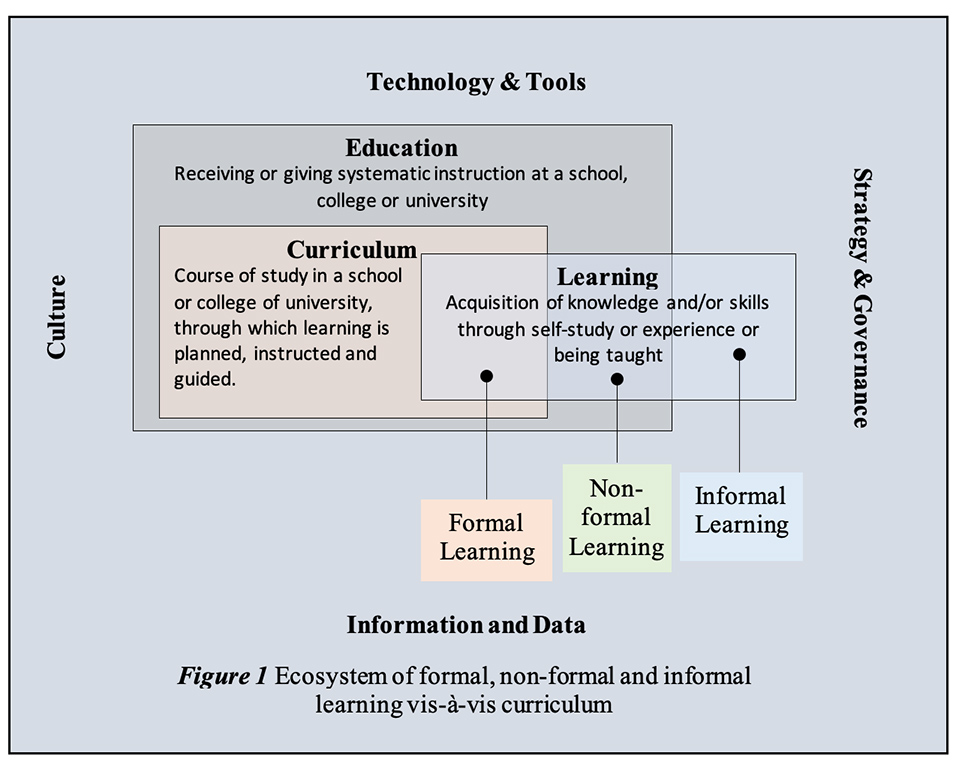The top online learning statistics in 2023 — from Devlin Peck’s Online Learning Statistics: The Ultimate List in 2023
- Worldwide, 49% of students have completed some sort of online learning
- Online learning is the fastest-growing market in the education industry – it has grown 900% since its creation in 2000
- 70% of students say online learning is better than traditional classroom learning
- The number of online learning users is expected to increase to 57 million by 2027
- 80% of businesses now offer online learning or training solutions
- 63% of students in the US engage in online learning activities daily
- Online learning can increase student and employee retention to as much as 50%
- Online learning can reduce the time needed to learn a subject by 40% to 60%
- The online learning industry is projected to be worth more than $370 billion by 2026
- Online learning and training can improve employee performance by 15% to 25%
Trade programs — unlike other areas of higher education — are in hot demand — from hechingerreport.org by Olivia Sanchez
Many young people choose to pursue short-term credentials over traditional college because they see them as a quicker and a more affordable path to a good
Excerpt:
While almost every sector of higher education is seeing fewer students registering for classes, many trade school programs are booming. Jones and his classmates, seeking certificates and other short-term credentials, not associate degrees, are part of that upswing.
Mechanic and repair trade programs saw an enrollment increase of 11.5 percent from spring 2021 to 2022, according to the National Student Clearinghouse. Enrollment in construction trades courses increased by 19.3 percent, while culinary program enrollment increased 12.7 percent, according to the Clearinghouse.
Death of a Traditional Lecture — from by Abby L Kalkstein, PhD, and Justin L. Rheubert
Excerpts:
However, some of the digital/remote content is better than what we can provide in the physical classroom. For example, in a biology course, instructors can watch students interact with thousands of 3D models, such as those found on Sketchfab or virtual programs such as BioDigital. Additionally, students can follow along virtually as instructors point out different structures. This approach is not possible in a physical classroom unless each student has their own physical model or they bring their computers.
…
We should welcome the unfamiliarity of new and blended course designs and strive to build courses based on the best approach for the content regardless of the format, rather than revert to the comfort of analog lecturing.
How College Students Say They Learn Best— from insidehighered.com by Colleen Flaherty
In a new Student Voice survey, students share their preferences for class format, active learning strategies and note-taking. Interactive lectures and case studies are especially popular.
OPM Market Landscape And Dynamics: Spring 2023 Updates — from philhillaa.com by Phil Hill
Excerpt:
OPM Market Landscape
- Market valuations of publicly-traded OPM companies have continued to drop, with 2U/edX, Coursera, and Keypath all down 75% or more from March 2021.
- Pearson tapped out of the market, agreeing to sell its OPM business to private equity firm Regent.
- Zovio is no more. It has ceased to be.
- FutureLearn sold the remnants of its business to a for-profit system, and it now has the most obnoxious website of any OPM provider, past or present.
- Byju’s, which (according to multiple media accounts) had been considering an acquisition of 2U/edX or Coursera, abandoned these plans to go off and deal with its own financial crisis.
- Noodle acquired South Africa-based Hubble Studios.
- The Government Accountability Office (GAO) released a report on the OPM market, triggering (but not causing) official efforts to make massive regulatory changes.
Harvard and MIT Launch Nonprofit to Increase College Access — from edsurge.com by Jeffrey R. Young
The effort is backed by the $800 million sale of the online platform edX in 2021.
Excerpt:
What would you do if you had $800 million to build a new nonprofit to support innovation in online learning?
That’s the privileged question that officials at Massachusetts Institute of Technology and Harvard University have been mulling over for the last two years, and late last month they announced some answers.
The result is a new nonprofit named Axim Collaborative, and its focus will be on serving learners that higher education has historically left behind.
As the group’s new CEO, Stephanie Khurana, put it in an interview with EdSurge this week: “The focus of the mission is to really help postsecondary completion and issues of economic mobility.”
California helps college students cut their debt by paying them to help their communities — from hechingerreport.org by Gail Cornwall
Inspired by service programs from earlier eras, the College Corps program puts low-income, first-generation students to work in education, food insecurity and climate mitigation
‘The reckoning is here’: More than a third of community college students have vanished — from hechingerreport.org by Jon Marcus
Among those who do enroll, red tape and a lack of support are crushing their ambition
The Importance of Student Agency and Self-Direction — from evolllution.com by Cathrael Kazin
Excerpt:
The traditional higher education model is not a one-size-fits all. And students are increasingly calling for adaptability and flexibility to meet their needs. The focus on student agency is a tactic that many leaders can leverage when looking to support these needs and thrive moving forward. In this interview, Cathrael Kazin discusses the need for student agency and self-direction, the challenges that come with it and how to improve student retention and success.













